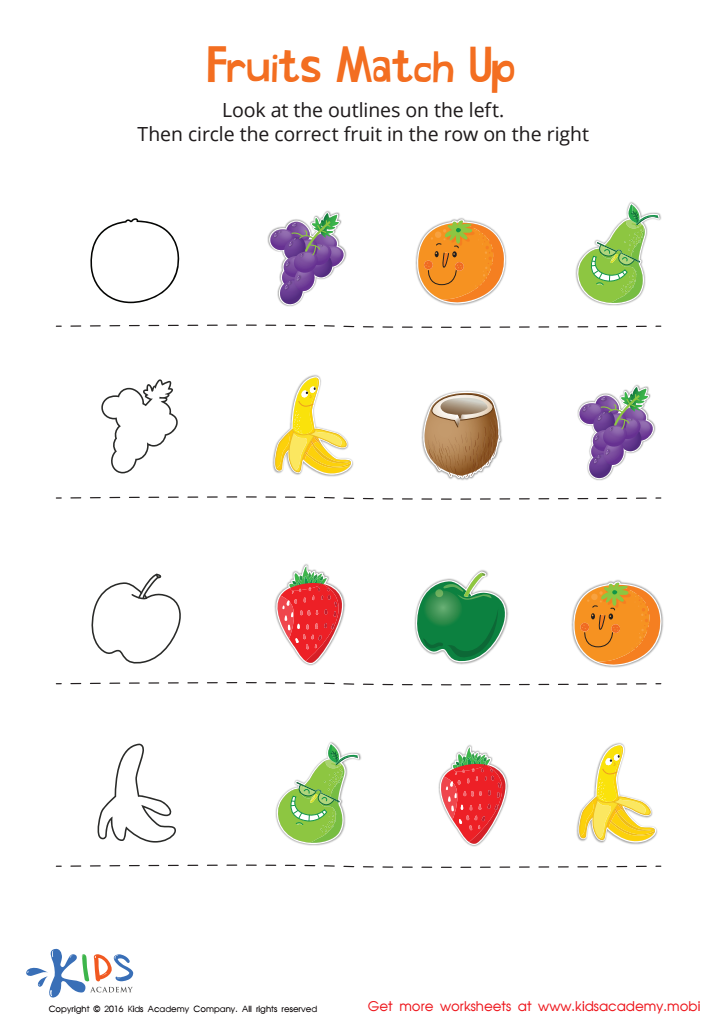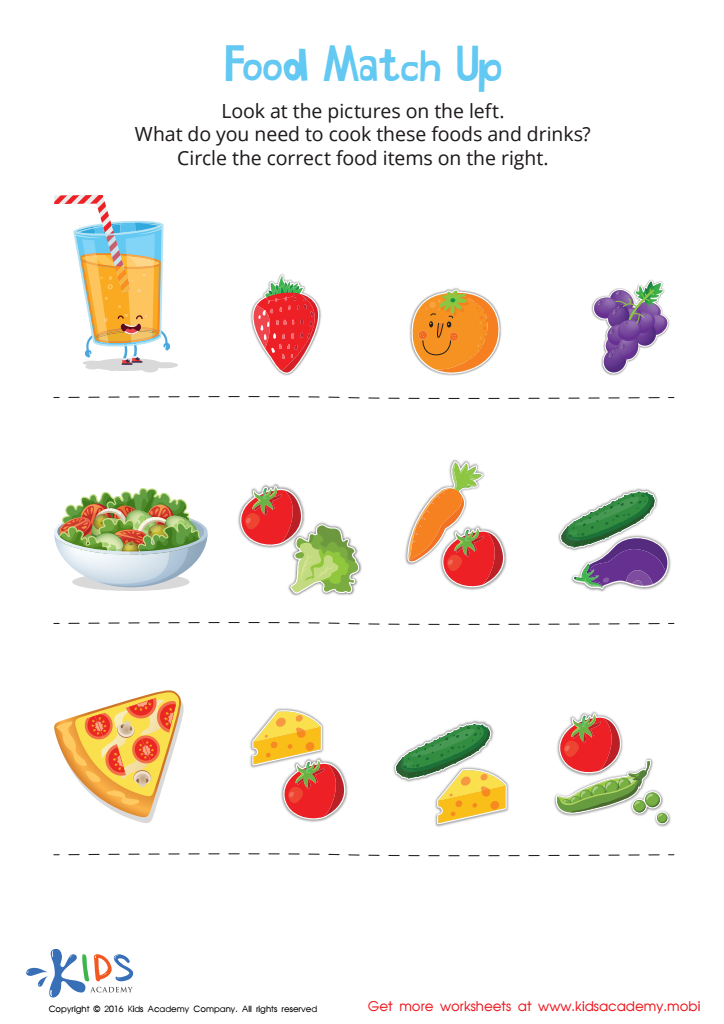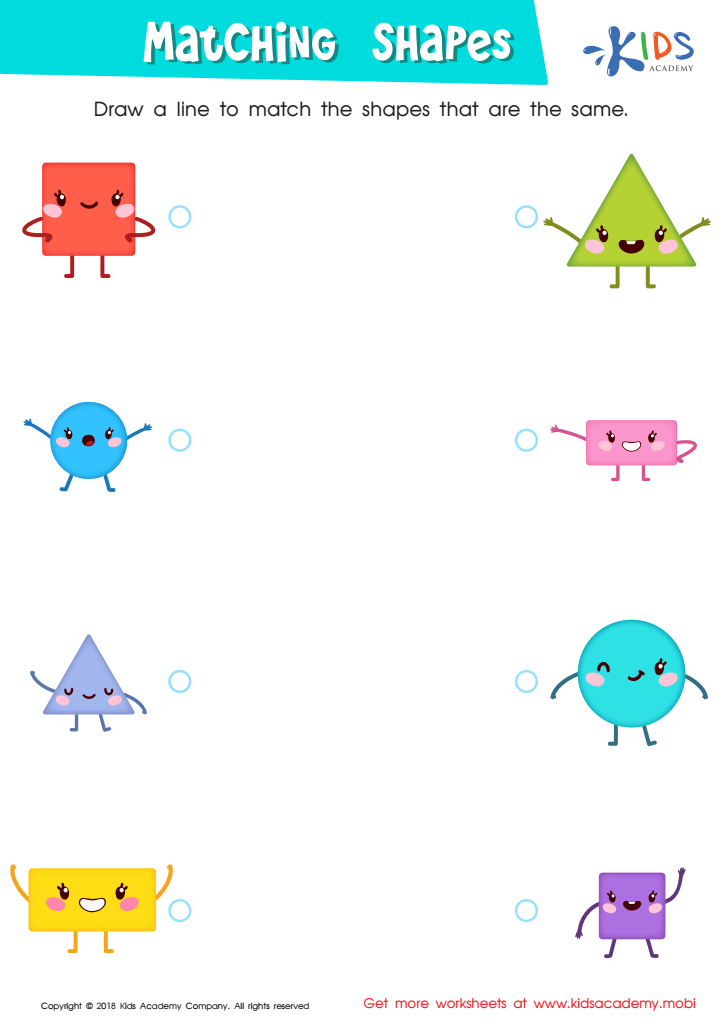Matching skills Normal Geometry Worksheets for Ages 4-6
3 filtered results
-
From - To
Discover engaging Matching Skills Normal Geometry Worksheets designed specifically for children aged 4-6! These colorful and interactive worksheets help young learners develop essential matching skills through fun geometry-themed activities. Kids will practice identifying shapes, patterns, and spatial relationships while enhancing their focus and attention to detail. Perfect for at-home or classroom use, these worksheets facilitate hands-on learning in an entertaining way. With varied exercises tailored to early learners, your child will confidently explore foundational geometry concepts while enjoying the excitement of matching. Download and print these worksheets today to foster your child's love for learning and build their cognitive skills in geometry!


Fruits Match Up Worksheet


Food Match Up Worksheet


Matching Shapes Worksheet
Matching skills in normal geometry are crucial for children aged 4-6 as they lay the foundation for essential cognitive, spatial, and social development. At this developmental stage, young learners are naturally curious and eager to explore their environment, making it an ideal time to introduce these concepts.
Understanding shapes and their relationships helps children develop problem-solving abilities, which are critical throughout their academic life. Matching skills enhance visual perception and critical thinking, encouraging children to make connections between objects and their attributes. For instance, recognizing that a square can fit into a square-shaped hole promotes logic and reasoning.
Moreover, engaging children in geometric matching activities fosters cooperative play, enhancing social skills such as communication, collaboration, and turn-taking. Activities can easily be integrated into everyday learning through games, puzzles, and hands-on experiences, making learning fun and interactive.
Additionally, mastery of these skills can set the stage for future mathematical learning, forming a seamless transition into more complex topics. By focusing on matching skills in geometry, parents and teachers contribute to holistic development, preparing children for success not just in math, but in critical thinking and collaborative social interactions as well.

 Assign to My Students
Assign to My Students
















